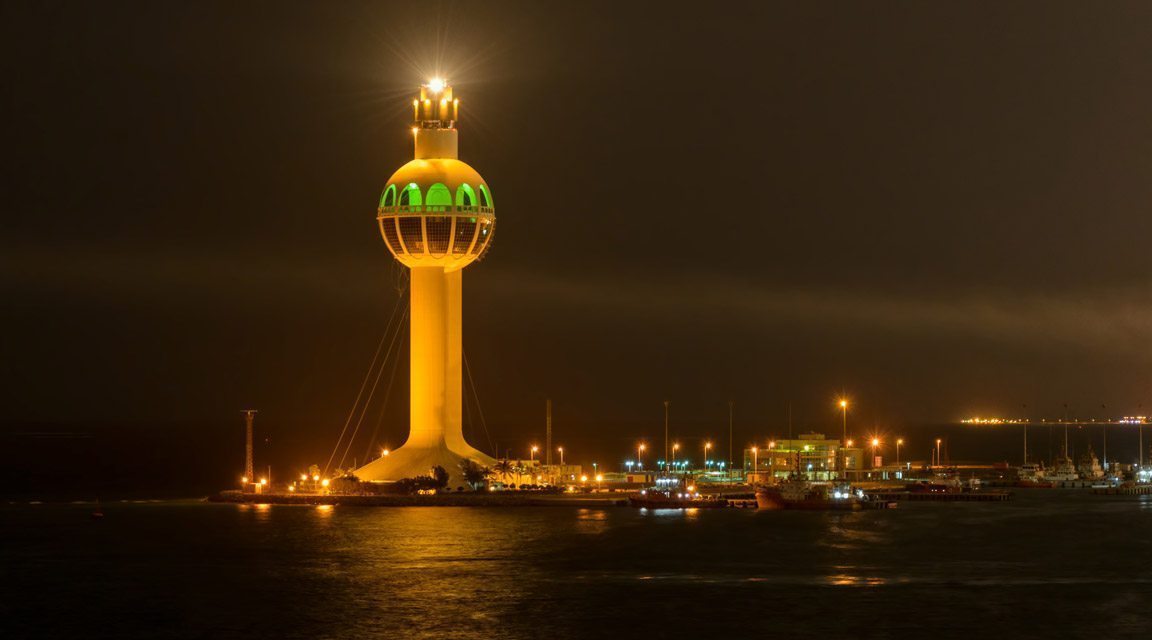

Saudi Ports Authority could be ring-fenced to allow independent fund raising
Saudi Arabia is considering plans to turn Saudi Ports Authority (SPA) into an autonomous body, which will enable the state-owned port operator to independently raise funds through the debt market or float its shares on the Saudi Stock Exchange (Tadawul).
The plans are at an initial stage and are part of the governments broader agenda to review state assets for privatisation or liquidate some of them to reduce burden on public finances, according to three sources familiar with the situation.
SPA has informally discussed the matter with banks, but has yet to invite them to pitch for advisory roles, according to two Riyadh-based bankers.
Riyadh determined
Our understanding is that this is at an initial stage, one of the bankers said, asking not to be identified as the negotiations are private. "The talks are happening and the government is very aggressive on reviewing and liquidating some of its assets." Riyadh has not decided on how it will ring-fence SPA, but the banker said it is most likely to be modelled after Dubai-based port operator DP World.
An SPA spokesman could not immediately be reached for a comment. Likewise, an email sent to the address listed on the companys website did not receive a reply.
Saudi Arabia, the regions largest economy, is implementing sweeping changes as it seeks to cut its dependence on oil and diversify its revenue streams. Riyadh is looking to introduce reforms that include taxation, a review of subsidies and the limiting of public sector wages amid a continued slump in hydrocarbons prices.
The kingdoms reform agenda, starting 2016, also includes privatising a range of sectors and economic activities, the Finance Ministry said in a 28 December press release without identifying the sectors.
Saudi Arabia expects a SR326bn ($87bn) budget deficit in 2016 as it embarks on spending cuts to compensate for shrinking oil revenues. The SR444.5bn of oil proceeds in 2015 represented 73 per cent of the kingdoms total revenues. This is 23 per cent less than the income generated from the sale of crude a year earlier. Oil has lost about two-thirds of its value from a mid-2014 peak.
Other flotations
The government is already considering plans to list shares in state-owned oil producer Saudi Aramco, Deputy Crown Prince Mohammed bin Salman al-Saud said in a January interview with English-language weekly newspaper The Economist. The UK's Capital Economics estimates Aramco could be worth anything from $1 trillion to upwards of $10 trillion. However, Amin Nasser, CEO of Aramco, later said the government will maintain a controlling stake if it decides to sell shares in the worlds biggest oil producer.
State-controlled Saudi Electricity Company (SEC) is also undergoing a restructuring programme. This involves the creation of four generation companies, an independent system operator, and separate transmission and distribution companies, which will lead to potential IPOs of the new subsidiaries, Abdullah al-Shehri, governor of Saudi Arabias Electricity & Cogeneration Regulatory Authority (Ecra), told MEED in an exclusive interview.
SPA operates nine major ports in the kingdom including Jeddah Islamic Port, King Abdulaziz Port in Dammam, the King Fahd Industrial Ports in Yanbu and Jubail, the commercial port in Jubail, Yanbu Commercial Port, Jizan Port, Dhiba Port and Ras al-Khair Port. Close to 95 per cent of Saudi imports and exports pass through the sea ports, which handle more than 5 million twenty-foot equivalent units (TEUs) annually, according to SPA's website.
You might also like...

Oman receives Madha industrial city tender prices
19 April 2024

Neom seeks to raise funds in $1.3bn sukuk sale
19 April 2024

Saudi firm advances Neutral Zone real estate plans
19 April 2024

Algeria signs oil deal with Swedish company
19 April 2024
A MEED Subscription...
Subscribe or upgrade your current MEED.com package to support your strategic planning with the MENA region’s best source of business information. Proceed to our online shop below to find out more about the features in each package.




